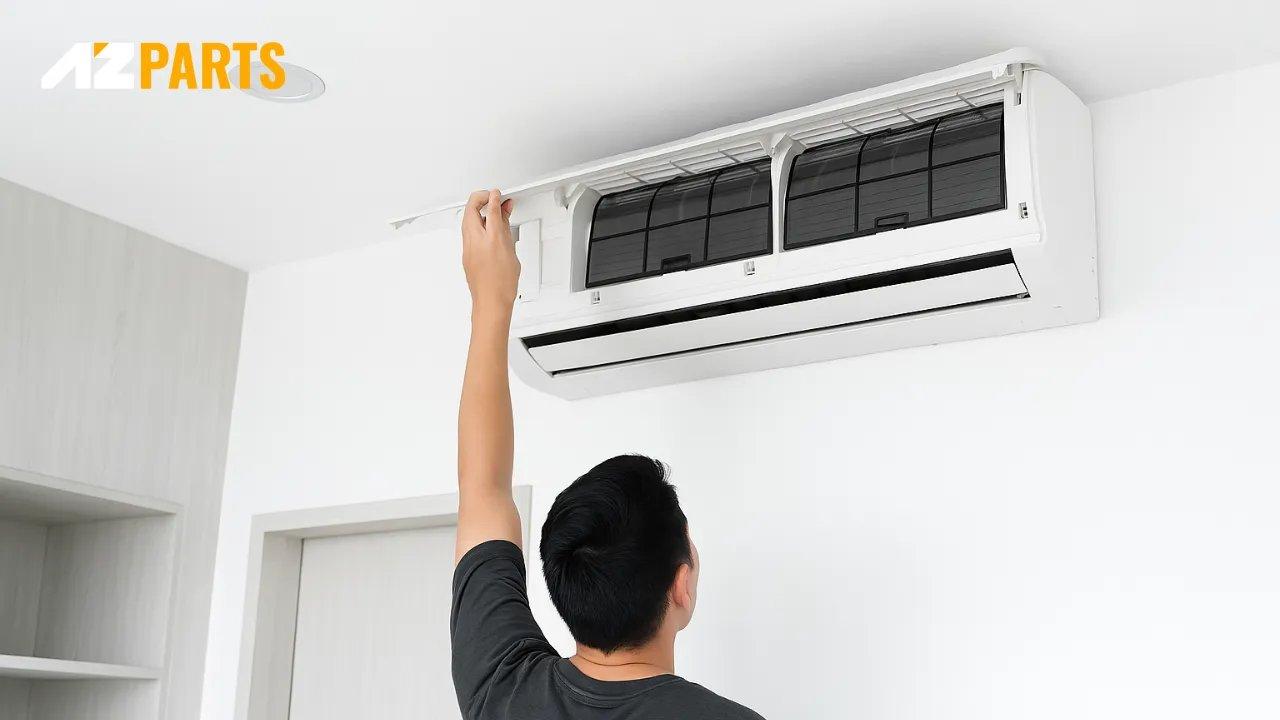Repair help
How To Tell If AC Capacitor Is Bad: 7 Common Symptoms
AZparts Team
Updated on July 11, 2025
6 min read
Recognizing air conditioner capacitor symptoms early can save you from unexpected breakdowns and expensive repairs. The capacitor is a vital component that helps your system start and run efficiently. When it begins to fail, your AC may struggle to cool, make unusual noises, or stop working altogether. In this article, let's explore these warning signs with AZParts, so you can act quickly and keep your home comfortable all season long.
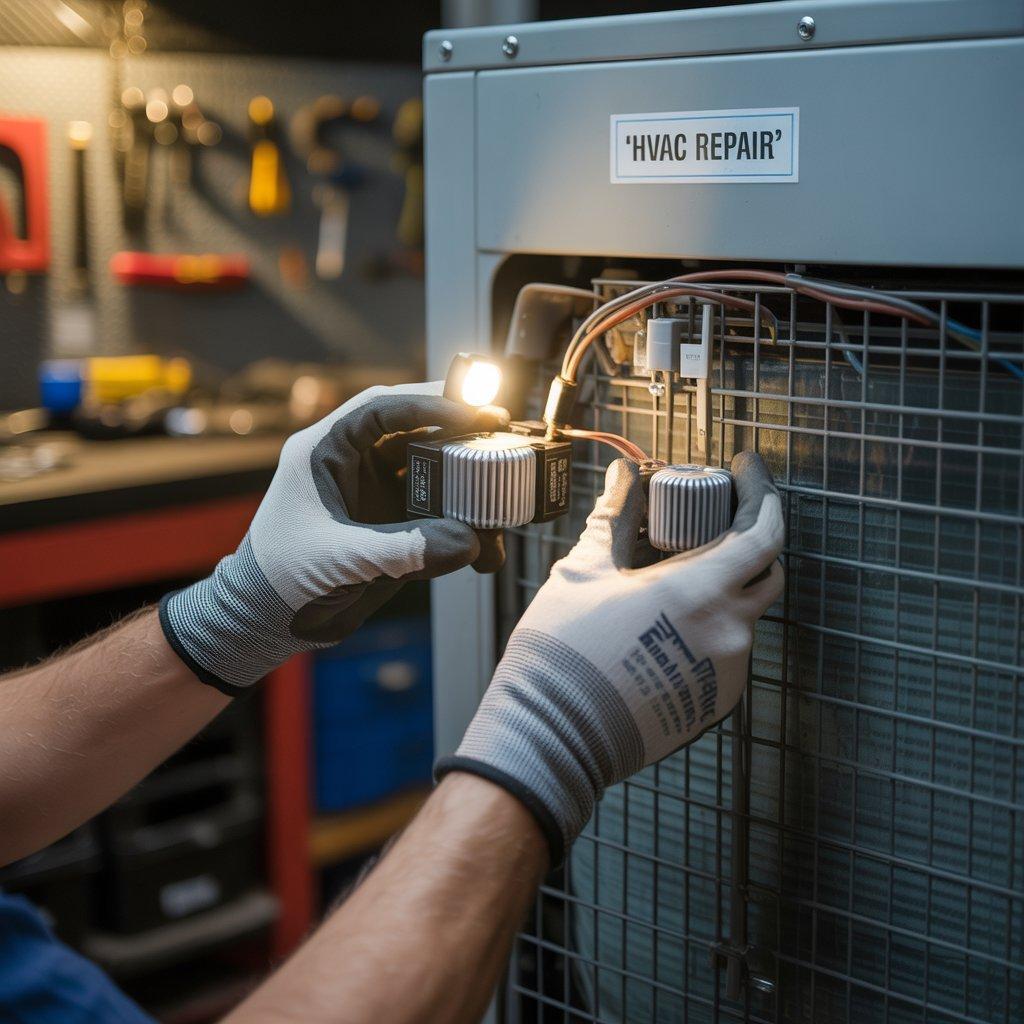
Key Signs Your AC Capacitor Is Going Bad
The capacitor is a crucial component in your air conditioner, responsible for starting the compressor and fan motors. When it begins to fail, your HVAC system may display subtle or sudden signs of trouble. Recognizing these early warning signs can help prevent more costly repairs and ensure your system keeps running efficiently through the hottest months.
1. Your Air Conditioner Isn’t Blowing Cold Air
When your air conditioner runs but fails to produce cool air, it may be a sign of a failing capacitor. The capacitor powers the compressor, which is responsible for circulating refrigerant through the system. Without a functional compressor, the air coming from your vents will remain warm, no matter how long the AC runs. If left unaddressed, this issue can put strain on other AC components and reduce overall efficiency.
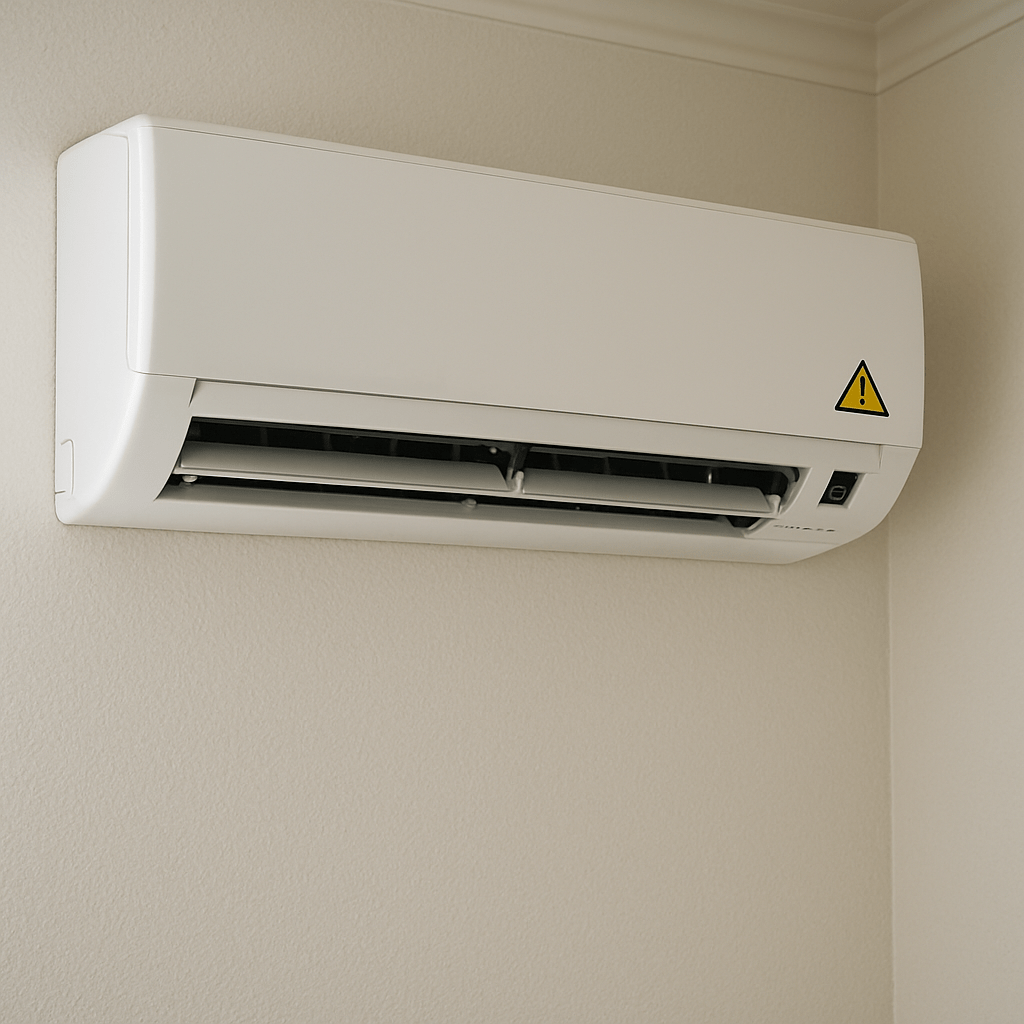
When your air conditioner runs but fails to produce cool air, it may be a sign of a failing capacitor (Source: AZParts)
2. Your Energy Bills Are Spiking Unexpectedly
A sudden and unexplained increase in your electricity bill may signal that your AC is working harder than it should. A bad capacitor can cause the system to cycle inefficiently or draw more power to start. This constant strain increases energy consumption and operating costs over time. Monitoring your monthly utility bills can help you catch early signs of electrical component failure, including capacitor issues.
3. You Hear Humming or Buzzing from the Compressor
Unusual humming or buzzing sounds coming from the outdoor unit often indicate that the compressor is struggling to turn on. This is typically caused by a weak or faulty capacitor that cannot supply the needed electrical charge. The motor may hum as it tries to engage but fails to start properly. Over time, this can lead to overheating or permanent compressor damage if not repaired.
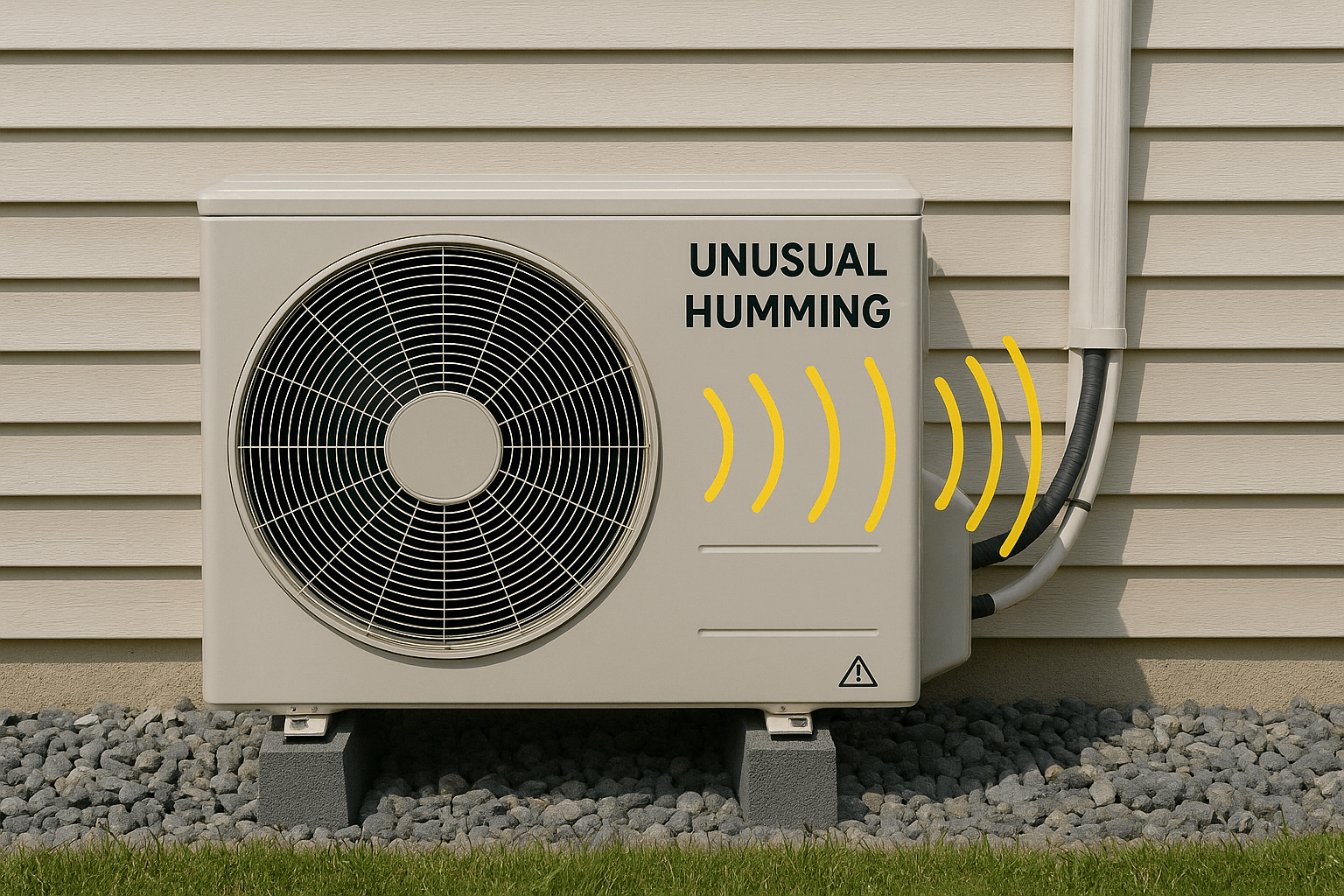
Unusual humming or buzzing sounds often indicate that the compressor is struggling to turn on (Source: AZParts)
4. Your HVAC System Is Aging
Older HVAC systems are more likely to experience capacitor failure due to wear and tear. Most capacitors have a lifespan of about 10 to 20 years, depending on the operating environment and maintenance. As the system ages, the capacitor’s ability to store and deliver energy declines. If your unit is over a decade old and showing erratic behavior, inspecting the capacitor should be a priority.
5. Your AC Unit Shuts Down on Its Own
If your air conditioner suddenly shuts off in the middle of a cooling cycle, the capacitor might be losing its ability to maintain power flow. This causes the compressor and fan motors to stop operating prematurely. Random shutdowns can become more frequent and frustrating if the issue is ignored. A professional diagnosis can confirm whether the capacitor is the root cause.
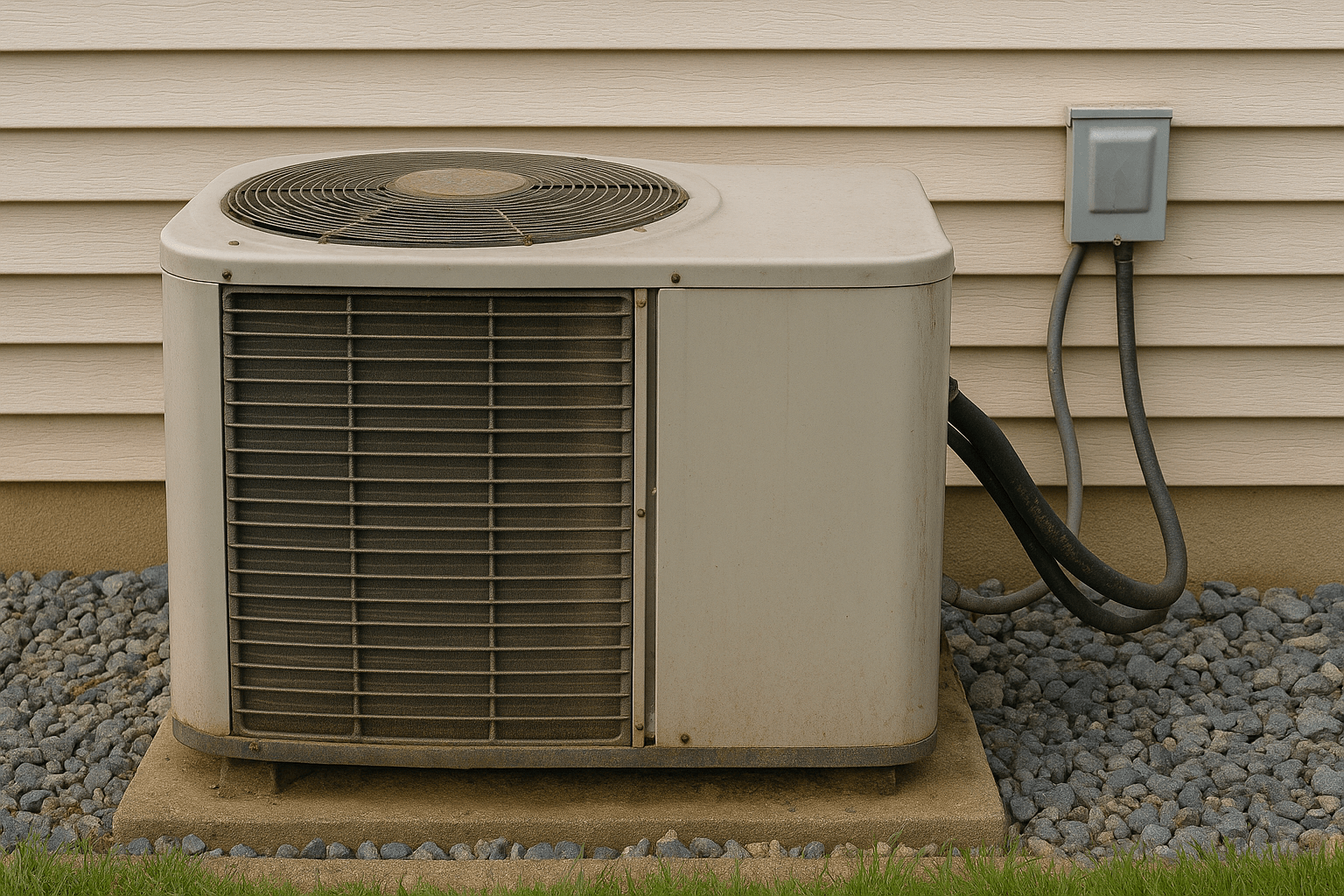
If your air conditioner suddenly shuts off, the capacitor might be losing its ability to maintain power flow (Source: AZParts)
6. Your AC Takes Too Long to Start or Run
When your AC takes several seconds or even longer to start, a failing capacitor could be to blame. The capacitor’s role is to deliver an instant electrical boost to the motor during startup. If the component is weak, it cannot supply sufficient power, causing delayed starts or sluggish operation. This delay puts stress on other electrical components and may lead to total system failure over time.
7. The AC Won’t Turn On at All
A completely nonfunctional air conditioner is often a sign that the start capacitor has failed entirely. When this happens, the system will not respond, even if the thermostat is working correctly. You may hear a click or nothing at all, indicating that power is not reaching the compressor or fan motor. Replacing the capacitor in this case is a simple but necessary repair to restore system function.
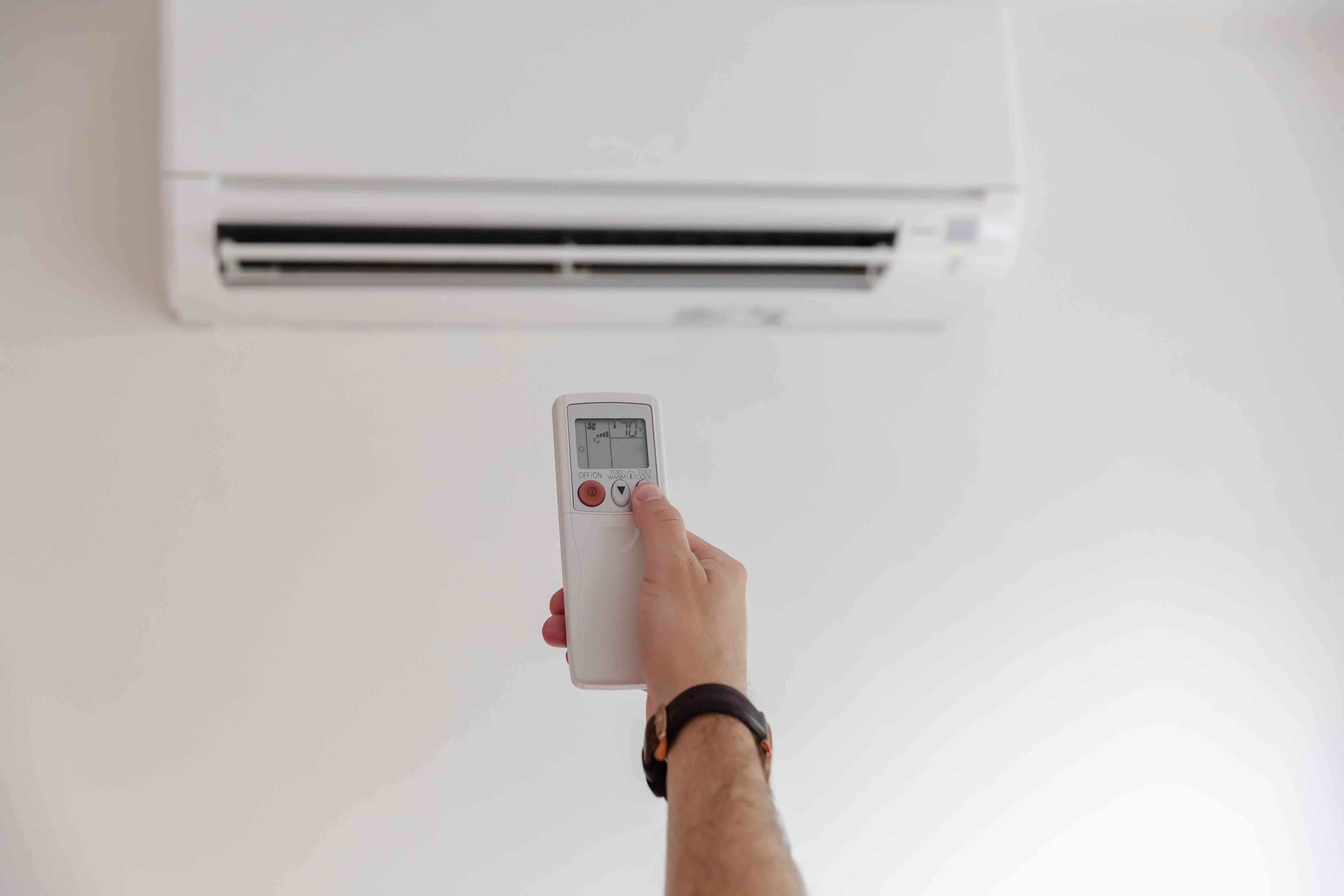
A completely nonfunctional air conditioner is a sign that the start capacitor has failed entirely (Source: AZParts)
AC Capacitor FAQs - What Homeowners Should Know
How do I know if I need a new AC capacitor?
Identifying a failing AC capacitor starts with watching for warning signs like delayed starts, warm air from vents, or unusual humming sounds. If your air conditioner struggles to turn on or frequently shuts off, the capacitor may no longer hold a proper charge. Technicians often confirm this issue with a multimeter to test the component's electrical capacity. Replacing a weak or faulty capacitor can restore your system’s performance and prevent further damage.
Can an AC run without a capacitor?
An air conditioner cannot function properly without a working capacitor. The capacitor provides the initial jolt of electricity needed to start the compressor and fan motors. Without this power boost, these critical components cannot engage, and the system will either not start or shut down shortly after. Running an AC with a damaged or missing capacitor could also place additional stress on the unit and risk further mechanical failure.
How long do AC capacitors last?
Most AC capacitors have an average lifespan of 10 to 20 years, depending on how often the system runs and environmental factors such as heat or power surges. In areas with frequent summer use or unstable voltage, capacitors may degrade faster. Regular HVAC maintenance can help detect early signs of wear before the component fails completely. Replacing an aging capacitor is a simple and cost-effective way to maintain consistent AC performance.
Need Help With a Failing Capacitor?
If your air conditioner is showing signs of capacitor trouble such as delayed starts, weak airflow, or unexpected shutdowns, it is important to take action before the problem gets worse. Replacing a failing capacitor is often a quick and cost-effective solution that can restore your system’s performance and reliability. Choosing the correct AC replacement part is essential to ensure the long-term safety and efficiency of your HVAC system.
AZParts provides a wide range of high-quality AC capacitors that are compatible with many leading HVAC brands. There are also other alternative products such as AC covers, AC piercing valves and AC port adapters. Whether you are a homeowner handling a repair or a professional technician, you can find reliable parts designed to meet your needs. A small component like a capacitor should not cause major disruptions. Visit AZParts today to find the right AC capacitor and keep your home cool and comfortable.
If your air conditioner is showing any of these capacitor-related issues, it’s best to address the problem before it leads to system failure. Replacing a faulty capacitor is often a straightforward fix that restores full function. For dependable, high-quality replacements, check out AZParts. We carry a wide selection of AC capacitors designed to fit top HVAC brands and ensure reliable performance.
Contact Information:
8 The Green, Ste A, Dover, Delaware 19901-3618, United States
Air conditioner
Further Reading
Further Reading





